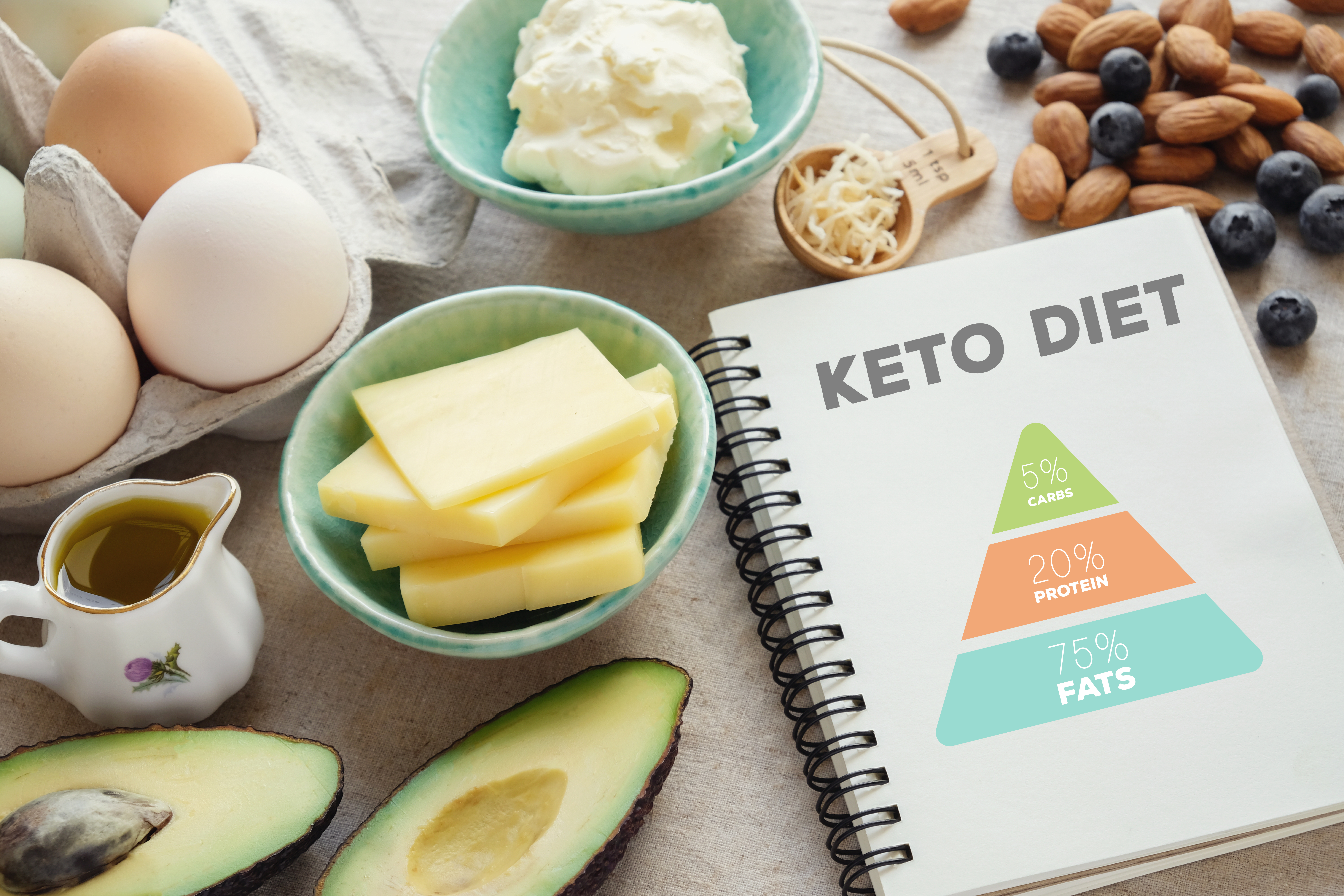Is a Ketogenic Diet right for me?
Energy 101
Normally, your body is fuelled by breaking down carbohydrates into their simplest form, known as glucose. This glucose is then taken up by the cells throughout your body, and burned to create the energy that keeps all of your systems functioning optimally throughout the day. Whilst the body can burn all macronutrients (carbohydrates, fats and proteins) for energy, carbohydrates are the easiest for your body to breakdown and utilise, leading it to preferentially burn them whenever available.
Ketogenic Eating
In contrast, a ketogenic diet adapts the body to using fat for energy, which is achieved by consuming a higher fat, moderate protein and limited carbohydrate diet.
A specific outcome of this diet is to limit the intake of carbohydrates, so the body does not have enough glucose for its metabolic needs. When this occurs (alongside consuming adequate protein), the body sources fats for fuel and converts them into compounds called ketones. It is ketones, instead of glucose, that the body then starts to use as its primary source of energy. This process is known as ketosis.
The ketogenic diet is quite different to a standard western diet, and different variations of the diet do exist. However, as shown in Figure 1 below, it is comprised of a specific balance of macronutrients, generally being:
- 50% of calories from high quality, unprocessed fats such as avocado, nuts, seeds, egg yolks, organic meat and coconut;
- 30% of calories from protein, such as fish, tofu/tempeh or organic animal protein; and
- 20% of calories from wholefood, complex carbohydrates such as leafy greens, non-starchy vegetables, legumes and low fructose fruit (such as berries).

Figure 1: The balance of macronutrients within a ketogenic diet.
Who can benefit from a ketogenic diet?
- Those wanting to lose weight.
- If you couple your ketogenic diet with a calorie deficit, the body will draw on your own fat stores for energy, resulting in a reduction in overall body fat.
- Those who struggle to lose weight due to insulin resistance will also benefit from ketogenic eating, as ketones do not require insulin to create energy.
- Athletes
- As a body that has entered ketosis efficiently draws energy from ingested and stored fat, the ketogenic diet can provide a constant and stable source of energy. This offers an advantage over glucose-dependant metabolism, which eventually requires regular glucose intake to sustain intense exercise performance beyond two hours.
- Individuals who prefer eating higher amounts of dietary fat;
- Those who experience digestive issues with high carbohydrate diets; and
- Individuals who respond poorly to low fat dieting.
Who might struggle with a ketogenic diet?
There are some individuals who may not easily adjust to a ketogenic diet due to conditions that limit the absorption of fats, or conversion of fats into energy. This may include individuals who experience:
- Digestive upset when consuming fat containing meals;
- Inborn mitochondrial conditions;
- Recurrent pancreatitis; and
- Gallstones or have had their gall bladder removed.

Is Keto Right for You?
Whether its weight loss or enhanced wellness, it’s worth talking to a healthcare Practitioner to see if a ketogenic diet will help you reach your health goals. As a bonus, working with a Practitioner will also greatly increase your ketogenic success, as they can help identify any barriers to successfully implementing the diet, and create strategies for you to overcome them.
Finally, as with any diet, it’s important to remember that each individual can respond uniquely, and that certain diets will suit some more than others. However, if you feel this diet is right for you, you could soon be joining the many that feel clearer, lighter and more energetic eating keto!

Leave a Reply